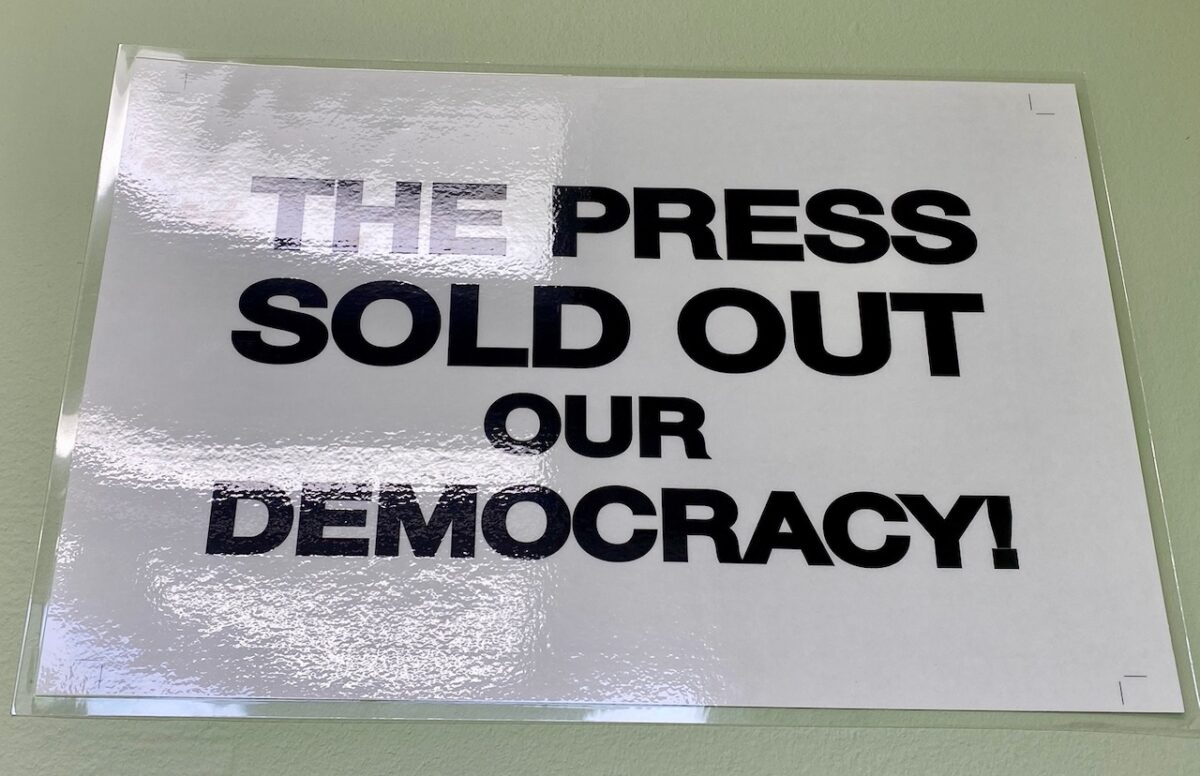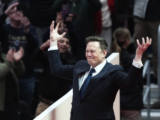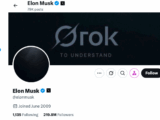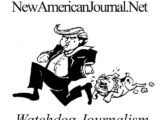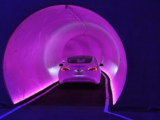“We don’t print the truth. We don’t pretend to print the truth. We print what people tell us. It’s up to the public to decide what’s true.”
– Washington Post Editor Ben Bradley
The Big Picture –
By Glynn Wilson –
WASHINGTON, D.C. – So after consulting with my doctor on Tuesday about the latest blood work from my annual physical exam two weeks ago, and discussing the final cardiology approval for my pending surgery for cataracts, I noticed a sign on his office wall, took a picture of it, and asked him about it.
“That’s an old sign,” he said. “But it seems to have a ring of truth about what’s going on out there now.”
“The press sold out our democracy,” it says.
Not that I believe this is universally true. A few news outlets are still out there trying to dig up the facts about what’s going on and reporting them in their way, which tends to be very fifth grade level, sensationalistic, and dependent on public pronouncements from the sources on the various beats, from the White House to executive branch agencies and members of Congress on both sides, as well as the occasional academic expert, a breed that is now under widespread attack from the right for their so called “wokeness.”
This reminded me of a famous quote uttered by legendary Washington Post editor Ben Bradlee in a moment of pique when being interviewed for the umpteenth time about the paper’s coverage of Watergate.
“We don’t print the truth,” he said. “We don’t pretend to print the truth. We print what people tell us. It’s up to the public to decide what’s true.”
So as I was digging through the coverage of Donald Trump and Elon Musk’s latest exploits and pronouncements, it is obvious this is true of most of the coverage of what Trump and the Republican Congress plan to do in gutting the federal budget by way of cuts to health care and food assistance for poor kids and old people and the sick – many of whom probably voted for Trump because they were fooled by the propaganda of the campaign – while cutting taxes even more on billionaires and regulations on favored corporations. That’s especially true of companies that pollute the most, like oil companies. They are slashing subsidies, tax incentives and grants for clean energy projects, which of course we will need if we really expect to compete with China in the 21st century.
Story after story says Musk is stepping away from the federal budget cutting spotlight to get back to running his companies, and even signaling his intent to stop contributing millions to influence political campaigns in the foreseeable future.
What’s really going on?
In a story back in March from the New York Times Beijing bureau about Musk’s damning ties to China, it was reported at the time that the biggest question for Musk’s influence on Sino-American commercial relations lies in how long his alliance with Trump will last.
“Mr. Musk contributed more than $100 million to Mr. Trump’s election effort. But some analysts already question whether their friendship can endure long enough to make a difference. The largest two egos in the world are eventually going to have a falling-out,” said an expert source on China’s auto economy.
What Elon Musk Needs From China
In a more recent piece from the Times’ top beat reporters on Trump, it was dutifully reported that Musk publicly indicated a backing away from spending time in Washington and spending millions on political contributions, although no reporting seems to exist on the real reasons behind this.
“In terms of political spending, I’m going to do a lot less in the future,” Musk said as he appeared virtually for a combative interview with Bloomberg News at the Qatar Economic Forum. “I think I’ve done enough.”
Has the split with Trump already come? Enquiring minds want to know.
Asked if his thinking stemmed from the “blowback” he had faced for helping to guide the Trump administration — a role that has created wide-ranging conflicts of interest — Musk dodged the question and left the door open for future outlays on elections.
“If I see a reason to do political spending in the future, I will do it,” he said. “But I don’t currently see a reason.”
Then comes the obligatory context paragraph.
“The comments were Mr. Musk’s most explicit yet about whether he wants to keep using his hundreds of billions to try to align the country with his right-wing worldview.”
It seems true that Republicans are now beginning to see Musk as a political liability, since he spent roughly $25 million on a major Wisconsin Supreme Court race to back a conservative candidate who ended up losing badly.
“Musk appears aware that his public presence in the race backfired, according to a person who has spoken with him. He has said almost nothing — in interviews or on X — about the defeat of Brad Schimel, his chosen candidate for State Supreme Court.”
Trump is also aware, as are Republicans in Congress, who are feeling vulnerable as well for the rise in prices to come from Trump’s tariffs and trade war, and the budget cuts currently being debated in Congress.
Public polling shows that Musk has grown unpopular with voters, and Democrats have rushed to use him as a political foil. Republicans have begun keeping their distance from him, even Trump on his social media platform, where Musk was the subject of praise for a month or two, only to have disappeared in recent weeks.
Sources say Trump has suggested to associates in recent weeks that it was time for Musk’s role to wind down. Musk said in a CNBC interview that he expected to be in Washington for “a couple days every few weeks,” but a person briefed on his plans said the visits might be more sporadic.
Of course some of his companies seem to be in trouble because of the public’s negative views of him, most importantly his electric car company Tesla, which is highly dependent on support from the Communist Party in China and the banks in China that loaned him the money to build his car and battery factories there. And now his company faces huge tariffs to get into the U.S. market, where his market share and stock prices are already tanking.
He has not said much in public about his opposition to tariffs since he helped get Trump elected and joined his administration. Although he was outspoken before about his opposition to tariffs on importing Tesla cars from China to the U.S. market. Perhaps he feels like all the money he spent to get Trump elected should be reflected in Trump’s tariff policies. But they are being ignored, just like many of the recommendations from the Heritage Foundation’s Project 2025. Trump just goes his own way, and to hell with the consequences, which he literally seems to fail to understand and doesn’t seem to care.
At the same time, the Chinese government has recently favored Chinese companies building electric cars that are now beating Tesla in the domestic market there, including self driving vehicles, which Tesla has been in on building but now is getting beat even in Shanghai.
Musk’s open support for Trump and role in invading federal agencies and departments and cutting staff, funding and grants to programs authorized by Congress, moves which are being fought and stopped in the courts, is clearly one of the reasons Tesla’s sales have plummeted and has caused strife within his companies. Some employees have taken the rare step of speaking out against their chief executive’s political activity. Last month, a group of Tesla employees published an open letter calling for his removal as the company’s leader, noting that “the damage done to Elon’s personal brand is now irreversible.”
Matthew LaBrot, a program manager who worked at Tesla for more than five years, said he had been fired for organizing the letter, while an X account associated with the employee movement was also suspended.
“I understood the risks, and I spoke out anyway,” Mr. LaBrot wrote on LinkedIn.
Musk has also began pulling resources back to his other companies, including staff. Amanda Scales, a human resources executive who helped take over the federal Office of Personnel Management, an incredible breach of security and “as part of his government takeover,” as the Times put it, recently returned to her role at xAI, according to her LinkedIn.
After the sharp drop in profits at Tesla, and the steep drop in its stock price, Musk told Wall Street analysts that he planned to spend less time on politics and more on his companies.
But is he really the one making the decision, or is he being forced out of the MAGA-Trump orbit because he is seen as a political liability? Or is something deeper going on, perhaps that he is beginning to be seen as a national security threat for his ties to China and the ruling Communist Party?
Politico spent even more space speculating about all of this, but it seems to me to be a distraction that hides a larger and more significant truth.
Why has Elon Musk disappeared from the spotlight?
Musk has even gone so far as to publicly declare that the DOGE staff are only advisors, with no authority to make cuts themselves, although that has not been the reality on the ground as they literally took over a number of federal agencies and starting firing people and cutting funding.
At the Qatar Economic Forum last week, Musk made the extraordinary claim that his cost-cutting venture, the Department of Government Efficiency, has no power and instead is merely an advisor.
Asked about the possible conflict of interest arising from the Tesla and SpaceX CEO’s government influence and concurrent government contracts, the world’s richest man said although DOGE is making cost-cutting decisions, it doesn’t have the power to act on them.
“I am certainly an advisor. I don’t have formal power, and that’s it,” he said. “The president can choose to accept my advice or not. And that’s how it goes.”
Elon Musk says DOGE has no power to cut costs: ‘We are merely advisors’
Musk has made bold claims about DOGE and its reach, initially claiming he would cut at least $2 trillion from the federal budget. That got whittled down to $1 trillion, then $170 billion, and experts say that’s not even true.
An Axios-Harris poll recently found that Musk, Tesla Motors and SpaceX saw their brand reputations crater in the past year, because of all the reporting on his support for Trump and role in gutting popular programs, some of which were there to aid in the competition with China with soft, cultural power and information, like U.S.A.I.D. and the Voice of America.
Tesla had been in 8th place in the 2021 ranking of America’s 100 most visible companies by reputation. But last year tumbled to 63rd and now is near the very bottom at 95th. It placed dead last in “character,” while placing near the bottom in areas like “ethics” and “citizenship.”
The Hill newspaper on Capital Hill also covered that story, but earlier asked the question directly.
Is Elon Musk a national security threat?
“Elon Musk is no ordinary billionaire. He’s the world’s richest man, the head of multiple frontier technologies, a chainsaw-wielding exhibitionist, and direct advisor to President Trump. That alone raises concerns,” the author says. “But add in his deep financial ties to China, his influence over U.S. defense infrastructure, and his alleged ketamine use, and those concerns increase exponentially.
“When we think of national security threats, we think of foreign adversaries, spies, rogue actors and hostile governments. We think of cyberattacks, intelligence leaks and backdoor deals made in smoky rooms,” the piece goes on. “But what if one of the greatest risks isn’t an outsider trying to break in, but rather an insider so deeply enmeshed in America’s technological and defense systems that his personal interests could compromise the entire structure? One could argue that this is the risk posed by Elon Musk.”
Musk has long heaped praise on the Chinese Communist Party, calling the Chinese “smart” and “hardworking.” Musk has even parroted Beijing’s talking points on Taiwan, likening it to Hawaii.
“Unlike other Western CEOs who take a more cautious stance, Musk’s demeanor is clearly deferential, even sycophantic. Why? Because China holds significant leverage over him.”
Tesla’s Shanghai Gigafactory exists because the Chinese Communist Party gave it the greenlight. Chinese President Xi Jinping and his colleagues offer Tesla rare privileges not afforded to other foreign automakers. In turn, Tesla relies on China for manufacturing, battery production and a massive chunk of its revenue. Tesla’s presence in China is a privilege, not a right; the moment Musk falls out of favor with Beijing, it can all be taken away. If the Chinese Communist Party were to pull the plug, Tesla’s valuation would plummet.
“That alone is concerning,” the author argues. “However, as readers know all too well, Musk isn’t just producing cars.”
His private ventures, SpaceX, Neuralink and xAI, control technologies with direct military applications. And according to the Financial Times, wealthy Chinese investors have been quietly pouring tens of millions into these firms through special-purpose vehicles, legal structures designed to shield their identities from scrutiny, even told my Musk io use untraceable accounts in the Cayman Islands.
Three China-backed asset managers admitted to selling over $30 million worth of shares in SpaceX, xAI, and Neuralink to anonymous investors in the last two years, and the real figure could be much higher, clearly constituting a conflict of interest as Musk is also the beneficiary of at least $18 billion in federal contracts in the U.S., mainly through NASA for the privatized services of SpaceX.
“This should concern all Americans, regardless of their political affiliations,” the writer contends. “China operates under a fundamentally different economic mode to the U.S. One where private industry and state interests are deeply intertwined. Any Chinese investor, particularly those with access to significant capital, is subject to Beijing’s influence, if not outright control. If the Communist Party decides it needs access to a specific technology, it has ample tools — legal and extralegal — to extract cooperation from any company with Chinese funding.”
SpaceX’s Starlink system has already played a critical role in military operations, most notably in Ukraine, where it has provided battlefield communications independent of terrestrial infrastructure. But Musk has also demonstrated a willingness to unilaterally restrict access, at one point denying Ukraine coverage near Crimea to avoid escalating tensions with Russia.
If China gains even indirect influence over Starlink through its financial backchannels, it raises urgent questions. For instance, could Beijing pressure Musk to restrict or deny access to U.S. allies in the Indo-Pacific during a conflict over Taiwan?
“Neuralink presents another, more insidious risk,” he says. “Brain-machine interface technology is still in its infancy, but its potential military applications are profound — from human performance enhancement to next-generation cyberwarfare capabilities. If China-backed investors have access, even peripherally, to Neuralink’s breakthroughs, it could accelerate Beijing’s own bio-digital research, a field in which the Chinese military has already expressed interest.”
Then there’s xAI.
“Artificial intelligence is fast becoming the new arms race. Musk’s ambition to challenge OpenAI puts him in direct competition with U.S. national security priorities,” the writer says. “If Chinese money is filtering into xAI through shadow investments, it creates an unseen pathway for Beijing to influence the development of next-generation AI models — ones that could be used in autonomous weapons systems, cybersecurity and intelligence gathering.”
“To be absolutely clear, China doesn’t just want to compete with the United States in these fields; it wants to dominate them. And it doesn’t play fair. Beijing is notorious for forcing Western companies into joint ventures, extracting intellectual property and using economic leverage to manipulate decision-making. Yet Musk, for all his supposed brilliance, has positioned himself in such a way that China can exert enormous influence over his empire…”
Musk has also admitted to using ketamine to treat depression.
“But there are reports that his use extends beyond medical purposes and into recreational indulgence,” the writer says.
The Atlantic recently explored the effects of long-term ketamine use, citing research from Celia Morgan, a leading expert in psychopharmacology. Her extensive study followed 120 frequent ketamine users over a year. The results were damning. Every participant suffered profound memory issues. They became increasingly dissociated from reality. They exhibited signs of delusional thinking.
“Ketamine is not some mild, benign substance,” the writer says. “Unlike traditional antidepressants, it acts on the brain in ways that can distort perception. Chronic ketamine consumption has been linked to extreme paranoia and even psychosis.”
Musk has direct influence over U.S. military assets, AI research and advanced neurotechnology. Suppose his ketamine use is anything beyond occasional therapeutic doses.
“In that case, it means Musk is functioning under the influence of a dissociative anesthetic while making decisions that could shape geopolitics, warfare and technological advancement.”
The precedent here is unthinkable, he writes.
“If a top general, a CIA director or a Cabinet-level official were known to be abusing a hallucinogenic drug, they would be immediately removed from their position. And for good reason. Yet, rather incredibly, Musk, a man with arguably more power than many high-ranking government officials, faces no such scrutiny.”
This is a direct security threat to U.S. national interests.
“A man whose mind appears to be chemically altered by a substance known to cause delusions should not be dictating the future of America’s most sensitive technologies,” this writer concludes. “A mentally compromised individual with financial vulnerabilities tied to a hostile foreign power is not just a liability. It’s a national security crisis waiting to happen.”
One More Angle
Then there is one more angle the public should be aware of, which as far as I can tell, is not being reported on much at all, except in a piece by Truthout and the New American Journal.
It is my contention, and I’m still working on gathering proof for another story, that all that government data being scooped up by the DOGE hackers, probably illegally, is being fed into Musk’s A.I. machine down in Memphis and being used to train the bots on how to replace people in many government functions, and to find ways to fine tune and target Trump’s “enemies list.”
So we have yet to see this power unveiled in public. But given the massive data centers and give the bots time, they will figure this out – if they haven’t already.
Perspective is Everything: Bots Are Being Trained to Run Governments
According to Alt National Park Service, Musk’s team was caught using a customized version of the Grok chatbot, without approval, to sift through sensitive government data inside the Department of Homeland Security. They used a modified version in an attempt to hide the fact that they were doing it.
This raises serious questions:
– Are they allowing AI to store or copy personal data from federal systems?
– Is Grok being trained on Americans’ sensitive or confidential information?
– Could this give Musk access to nonpublic federal contracts that benefit Tesla or SpaceX?
– What agencies besides DHS were involved?
– Who approved this internally, if anyone?
– Has any of this been disclosed to Congress or the public?
And here are the risks if Grok wasn’t running in a tightly isolated, secure environment:
– Data leaks: AI systems can retain and regurgitate sensitive information unless strictly sandboxed.
– Unauthorized training: If Grok is learning from this data, it could be embedding federal records into a private product.
– Surveillance without oversight: Americans’ data may be analyzed or flagged with no legal safeguards.
– Unfair advantage: Musk could gain inside knowledge to benefit his companies or outpace other AI providers.
– National security exposure: DHS systems handle high-risk, confidential material, this isn’t just personal data, it’s critical infrastructure.
This isn’t a technical hiccup. Its unchecked AI use in government, especially by someone with financial and political stakes, puts democracy and privacy at risk.
___
If you support truth in reporting with no paywall, and fearless writing with no popup ads or sponsored content, consider making a contribution today with GoFundMe or Patreon or PayPal.


